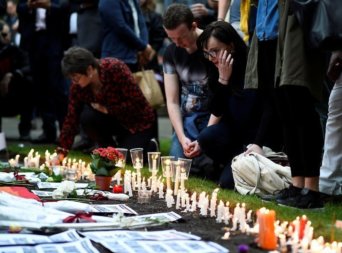- About
- Topics
- Picks
- Audio
- Story
- In-Depth
- Opinion
- News
- Donate
- Signup for our newsletterOur Editors' Best Picks.Send
Read, Debate: Engage.
| located: | USA |
|---|---|
| editor: | Vanessa Ellingham |
A one-man massacre in a gay nightclub in Orlando, Florida has left 49 dead and 54 wounded, a tragic day for families, friends, and the LGBTQ+ community.
Hatred of the LGBTQ+ community seems to have been a key issue in the gun attack, although gunman Omar Mateen was known to frequent the club where the shooting took place. He pledged his allegiance to the Islamic State shortly before the attack, with media affiliated with ISIS claiming responsibility.
But behind the reasons of hatred is another, infinitely more preventable reason for the attacks: a lack of gun legislation in the USA.
Despite countless gun attacks on minorities, everyday civilians, and even schoolchildren in recent years, US legislators have responded without legislation. In fact, the US government is currently banned from funding research on gun violence - the kind of research that could produce effective policy.
As Antonia Ginatta wrote for Human Rights Watch: “Dismissing mass shootings as a price to pay for living in the United States is a betrayal of all who live there.”
The gun lobby continues to make it possible for innocent lives to be lost at the hands of the power-hungry, hateful, and mentally ill who need adequate care, not easy access to weapons.
In fact, the worst mass-shootings in recent years are all connected by the same type of gun.
“From Aurora to Newtown, to San Bernardino and Orlando, the main killing machine was the AR-15, a rifle of military origin, whose semiautomatic version is known for its precision and ability to fire many rounds quickly, and which can be bought legally in the US.”
After 20 children and six adults were killed at Sandy Hook Elementary School in Newtown, Connecticut in 2012, families sued the manufacturer of the AR-15, arguing that the rifle is a military weapon and should not be sold to civilians.
And yet it continues to be so.
There is plenty of sense to be found in these senseless attacks, and yet legislators continue to turn a blind eye.
Prayers don’t bring back lives, but legislation can save them.
